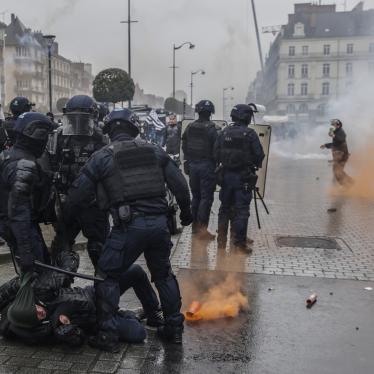France has been in the spotlight for the wrong reasons the last few weeks.
The country has faced a social, political, and human rights crisis with rights groups and independent bodies criticizing French police for resorting to excessive force during recent protests over a controversial pension reform, and the contested construction of a giant water reservoir in Sainte-Soline, western France.
On March 28, French Interior Minister Gerald Darmanin announced that the government would seek to dissolve an environmental group, Association Les Soulèvements de la Terre, alleging the group incited violence during March 25 protests in Sainte-Soline opposing the reservoir. The protests were marred by violence. According to organizers and the media, 200 protesters were injured, 40 of whom were seriously hurt. At this writing, one was still in a coma. According to French authorities, 47 police were injured.
Dozens of rights and environmental groups, as well as unions, denounced the decision. Les Soulèvements de la Terre indicated they would challenge the dissolution in court. Darmanin previously called environmental activism in Sainte-Soline “ecoterrorism”, a label sometimes used by governments seeking to block environmentalists’ work.
On April 5, Darmanin continued his attack on civil society by threatening to withdraw government funding from the prominent rights group Ligue des droits de l’Homme, which documented and denounced police violence in Sainte-Soline.
It is not the first time the French government has lashed out at civil society groups raising concerns about the country’s rights record. The French nongovernmental Observatory of Associative Freedoms has denounced a “witch-hunt” against civil society groups, particularly those defending the rights of Muslims, often targeted in the context of the fight against Islamism. In 2020, French authorities dissolved a leading anti-discrimination organization, alleging among other things that its descriptions of certain counterterrorism measures as Islamophobic incited hatred.
The French government’s actions put independent activism at risk and restrict the rights to freedom of expression, association, and peaceful assembly, which are protected under international and European human rights law.
Experience from other European countries indicates that a worsening environment for civil society in one sector can have a chilling effect on others. Instead of attacking the country’s independent human rights organizations and attempting to dissolve environmental groups, the government should investigate and address the concerns these groups raise.










